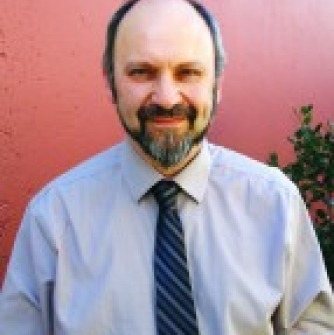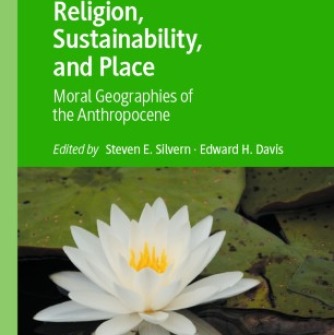| Contact |
Evea Raye
|
|---|
Professor Steven Silvern of the geography and sustainability department at Salem State University published his edited volume, Religion, Sustainability, and Place: Moral Geographies of the Anthropocene, in 2021. The CRCA had the opportunity to interview Professor Silvern about the origins of the project and its eventual publication last year.
Religion, Sustainability, and Place: Moral Geographies of the Anthropocene is a co-edited book with 14 different chapters; each one explores distinct religious or spiritual belief systems and how those groups try to achieve a more sustainable relationship with the environment. Whether that be through water, food, resource extraction, forestry, eco villages, etc.
The project began when Silvern and his colleague Ed Davis, who is co-editor of the book, were both presenting their research at a conference. Davis presented on 19th and early 20th-century Christian approaches to food, while Silvern discussed his longtime interest in the Jewish food movement. Having known each other for nearly 30 years, the two sat down together after the conference and decided to collaborate on a larger project that combined their research interests.
Silvern says, “We wanted to create a volume where scholars present their research on different aspects of religion and sustainability.” But Silvern also noted, “we’re geographers, I think the other thing that was important was that all these things were located somewhere, that they are embedded in a particular place.”
The pair felt it was important to not just highlight religion and sustainability but to try to address the idea of place, and how people are attempting to be sustainable somewhere. Thus, the volume became Religion, Sustainability, and Place.
Silvern has had an interest in the geography of food for more than a decade, particularly in terms of food systems. In the past, he has worked with GIS graduate students to create food system maps. For this volume, however, he wanted to focus on the Jewish community and what the sustainable food movement looked like within that community. His research resulted in the chapter, “The Jewish Food Movement: A Sustainable and Just Vision for Place, Identity, and Environment.”
Professor Silvern has already begun his next project, looking at the American Jewish community and their response to climate change. While it is still in the early stages, he hopes to spend this summer doing as much research as he can. Silvern is unsure whether it will result in a chapter or a peer-reviewed publication, but he does mention that there might be the possibility of another edited volume in the works.
“There is a growing field that looks at religious responses to climate change. Not just sustainability, but very specifically about the response religious and spiritual belief systems have to climate change,” Silvern says. He is already imagining bringing together scholars who research different religious communities all over the world, and looking at how those groups are taking action towards trying to solve the climate crisis.
Congratulation Professor Silvern! We look forward to learning more about your future projects!
--
Learn more about the Center for Research and Creative Activities. All Salem State University students, faculty, and staff are invited to email their research to be featured by the CRCA: ssu-research@salemstate.edu.


